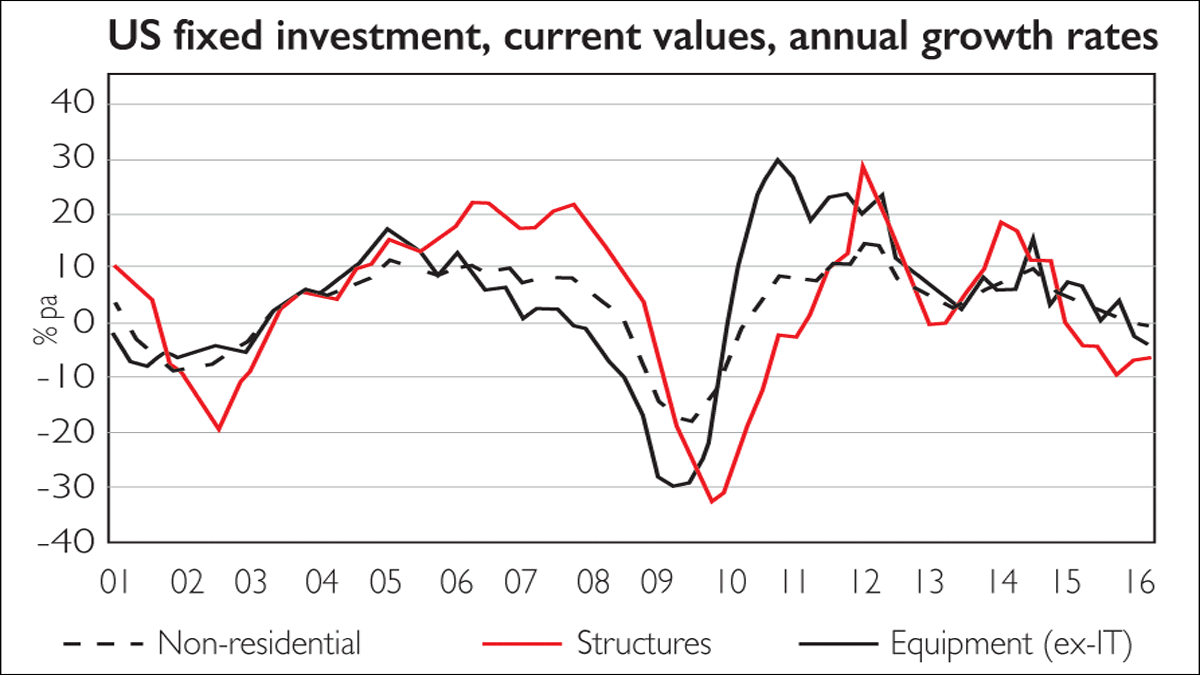Central banks are killing business
The experimental monetary policies of central banks are killing off companies’ desire to invest, says Peter Warburton.
Get the latest financial news, insights and expert analysis from our award-winning MoneyWeek team, to help you understand what really matters when it comes to your finances.
You are now subscribed
Your newsletter sign-up was successful
Want to add more newsletters?

Twice daily
MoneyWeek
Get the latest financial news, insights and expert analysis from our award-winning MoneyWeek team, to help you understand what really matters when it comes to your finances.

Four times a week
Look After My Bills
Sign up to our free money-saving newsletter, filled with the latest news and expert advice to help you find the best tips and deals for managing your bills. Start saving today!

The experimental monetary policies that central banks have deployed in recent years quantitative easing (QE) and negative interest rates are killing off companies' desire to invest, other than in rapid payback items, such as information technology and vehicles. In their enthusiasm to encourage private-sector spending, central banks are distorting capital expenditure (capex) incentives and undermining the motivation for long-term decision-making. They are so fearful of the marauding hordes on horseback that they are sacrificing the furniture to fuel the train.
Central bankers, who have mostly never worked a day in a non-financial private enterprise, don't have a clue about what motivates capital-spending decisions. To echo the sentiments of Eric Lonergan, writing in the Financial Times: "investment decisions have financial consequences over many years and are more influenced by beliefs about future growth and attitudes to risk than by overnight interest rates set by central banks". Ignorance of this process by the central banks is deeply damaging.
There are three strong reasons to believe that, far from promoting greater investment, their policies are doing more to discourage firms from spending.First, corporate cash hoarding is a wholly rational response to an economic environment in which the prospective real returns to business investment are highly uncertain. QE and "lower for longer" interest-rate policies betray a lack of confidence on the part of policymakers towards the economic outlook. Rather than giving the economy an extra push, they introduce yet another layer of doubt and risk.
MoneyWeek
Subscribe to MoneyWeek today and get your first six magazine issues absolutely FREE

Sign up to Money Morning
Don't miss the latest investment and personal finances news, market analysis, plus money-saving tips with our free twice-daily newsletter
Don't miss the latest investment and personal finances news, market analysis, plus money-saving tips with our free twice-daily newsletter
Second, policies designed to crush the term premium (the spread between the interest rate on longer-term bonds and those on shorter-term ones) have also promoted the idea that the terminal real interest rate has fallen to around 1%, or even to zero.It is impossible to avoid the implication that the long-run pace of real economic growth has been similarly reduced. Hence firms' planned expansions in capacity must be scaled back accordingly in response to expectations for lower growth and weaker demand.
Third and perhaps most damning large-scale asset purchases by central banks have brought down government bond yields and driven investors to search for higher yields elsewhere. When investors reach for yield in equities, they concentrate in safe companies with dependable cash generation. This sends a powerful signal to quoted companies to distribute profits to shareholders, rather than reinvest in physical assets.
As a result, the implied hurdle rate of return the return needed for a company to justify an investment rather than pay the cash out as dividends has been rising even as bond yields have fallen.
Jason Thomas, director of research at the Carlyle Group, a private-equity firm, shows empirically in a recent paper that "by increasing the market value of current income relative to future returns, unconventional policy may lead corporate managers to boost shareholder distributions at the expense of capital accumulation". When the same managers are personally given an incentive by the share-price performance of their companies, the effect is compounded.
The implications of all this are obvious and are borne out by the data. The recent deceleration of US non-residential capital spending is shown in the chart above. The latest statistics from the UK tell a similar story: gross fixed capital formation has slowed from 7.9% in 2014 to just 1% in the second quarter of 2016. In Germany, non-residential construction investment fell by 5.2% and machinery and equipment investment by 2.4% in the latest quarter. In short, central bank policies, with the best will in the world, are poisoning business capex.
Peter Warburton is the founder and chief economist of Economic Perspectives.
Get the latest financial news, insights and expert analysis from our award-winning MoneyWeek team, to help you understand what really matters when it comes to your finances.
Dr Peter Warburton is director of Economic Perspectives Ltd.
-
 Ayatollah Ali Khamenei: Iran’s underestimated chief cleric
Ayatollah Ali Khamenei: Iran’s underestimated chief clericAyatollah Ali Khamenei is the Iranian regime’s great survivor portraying himself as a humble religious man while presiding over an international business empire
-
 'AI will change our world in more ways than we can imagine'
'AI will change our world in more ways than we can imagine'Interview Rob Arnott of Research Affiliates talks to Andrew Van Sickle about the AI bubble, the impact of tariffs on inflation and the outlook for gold and China